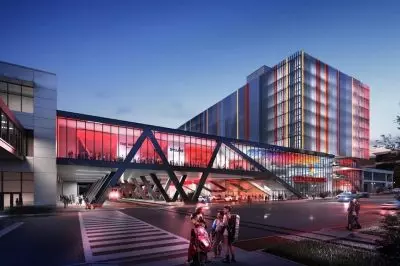 According to new market studies authorized by the panel regulating gambling facilities in the state of Iowa have shown that Nebraska’s aspirations to establish casino venues along its border with Iowa will “cannibalize” the state’s industry revenue. Cedar Rapids officials now hope that the research findings will push local regulatory bodies to consider the approval of a casino in the city, which is currently the second-largest one in Iowa.
According to new market studies authorized by the panel regulating gambling facilities in the state of Iowa have shown that Nebraska’s aspirations to establish casino venues along its border with Iowa will “cannibalize” the state’s industry revenue. Cedar Rapids officials now hope that the research findings will push local regulatory bodies to consider the approval of a casino in the city, which is currently the second-largest one in Iowa.
One report, in particular, has pointed to a possible detrimental impact on the market that includes Riverside- and Waterloo-based casinos. That has been the reason why the city of Cedar Rapids has so far faced the Iowa Racing and Gaming Commission’s unwillingness to give a casino operating license both in 2014 and 2017.
According to Cedar Rapids officials, the city is still willing to compete for a casino operating license in order to help Iowa confront the competition from the gambling services that have recently been allowed at 6 horse tracks in the state of Nebraska. Now, the city of Cedar Rapids would be able to seek a license from the state’s gambling commission thanks to the fact that the gaming referendum in Linn County was given the green light by local voters in November 2021.
New Studies Provide More Details about the Impact of Potential Cedar Rapids Casino
 At the latest meeting of the Iowa Racing and Gaming Commission that took place on January 13th, Innovation Group and Spectrum Gaming Group presented the findings from their studies, with the reports raising a red flag about stiff competition from neighboring states, especially considering the fact that Illinois and Nebraska are currently expanding their gambling sectors.
At the latest meeting of the Iowa Racing and Gaming Commission that took place on January 13th, Innovation Group and Spectrum Gaming Group presented the findings from their studies, with the reports raising a red flag about stiff competition from neighboring states, especially considering the fact that Illinois and Nebraska are currently expanding their gambling sectors.
According to the projections made in one of the studies, Iowa gaming revenue is to decline by $183 million every year. Another study projected that the decline could be much more severe – $256 million – as a result of the stiff competition of Iowa’s neighboring state.
Furthermore, the study of Innovation Group showed that a casino established in Cedar Rapids would take $61 million from the casinos that already exist in the same market. Research data also showed that the state would get a $51-million net commercial gaming revenue gain if such a casino is allowed in the city. The study also projected that a casino in Cedar Rapids would have a 76% overlap with casinos situated at about a 45-minute drive.
Tiffany O’Donnell, Mayor of Cedar Rapids, has explained that the numbers had improved lately. According to her, it is now the right time for the establishment of the long-desired casino.
Members of the state’s gambling commission were interested in understanding whether a casino in Linn County could oversaturate the market and have a negative impact on nearby casinos. Still, they have not unveiled what their position on the issue really is to date. According to the administrator of the Iowa Racing and Gaming Commission, Brian Ohorilko, past commissions have taken into account the projections for revenue increase but it is just one factor.
A study commissioned by the Spectrum Group stated that the Riverside and Waterloo casinos served Cedar Rapids well, but the group was unable to provide information about the number of residents from a certain ZIP code who visited the aforementioned casinos.
According to City Manager Jeff Pomeranz, Cedar Rapids’ proposal is likely to be a competitive one, with the expected revenue set to help gaming remain strong in the state. Mr. Pomeranz, however, believes that the true benefit of the casino establishment would show in the improvement of quality of life amenity.